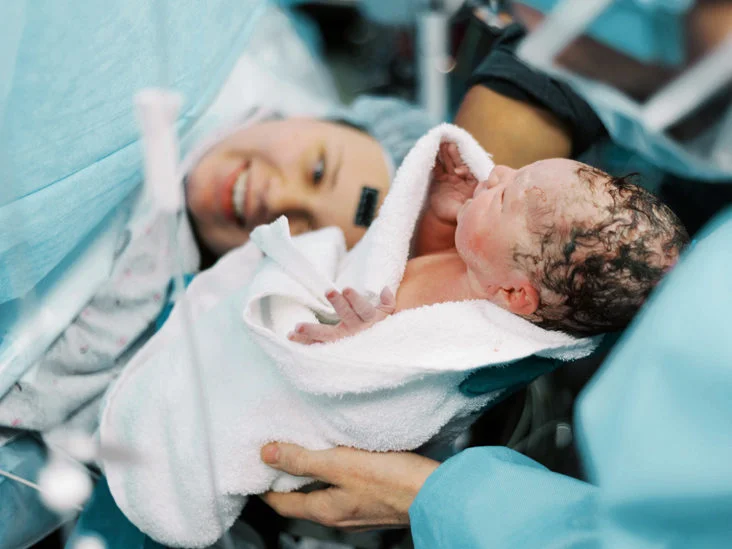Vaginal Delivery After Two C-Sections Poses Grave Risk of Death, Gynaecologists Urge Caution

Experts in the field of maternal health are sounding an alarm, cautioning women against the perilous pursuit of vaginal delivery following two or more caesarean sections, asserting that such endeavors could precipitate fatal outcomes, including the death of both mother and child due to uterine rupture.
Maternal health specialists have underscored the paramount importance of ensuring safe deliveries and the well-being of infants, irrespective of the mode of childbirth. They urged expectant mothers to prioritize their health and that of their babies over cultural norms or gender preferences that may lead to risky decisions.
Professor Innocent Ujah, the Vice-Chancellor of the Federal University of Medical Science in Benue State, raised concerns about the enduring influence of culture and customs on maternal health within many Nigerian communities. He urged the government to redouble its efforts in raising awareness to combat these pervasive influences.
While the incidence of childbirth by caesarean section is on the rise in Nigeria, experts dispelled assertions of a corresponding surge in deaths resulting from the procedure. The World Health Organization (WHO) reported that caesarean section usage has witnessed a global escalation, accounting for more than one in five childbirths. This figure is anticipated to surge further, with projections indicating that nearly one-third of all births could be delivered via caesarean section by 2030.
Elaborating on the perils of pursuing vaginal delivery following multiple caesarean sections, experts delineated the potential outcomes: successful vaginal birth, uterine rupture leading to fatal consequences for both mother and child, or a ruptured uterus causing maternal death while sparing the baby. The consensus remains firm – the health and safety of both mother and baby are paramount, irrespective of the chosen delivery method.
Professor Ujah, a seasoned gynaecologist, shed light on the physiological vulnerability of the uterus after caesarean sections, underscoring the heightened risk of rupture during labor. Stressing the importance of early medical intervention, he underscored that medical care, rather than cultural pressures, should dictate childbirth choices.
Cultural and traditional beliefs continue to exert a strong influence, particularly among women in Nigeria’s southeast region. These convictions often drive women to pursue vaginal deliveries, even in cases where caesarean section is recommended. Maternal health experts, however, assert that the focus should not lie on the mode of delivery but rather on the health and safety of both mother and child.
Furthermore, Professor Solomon Avidime, an esteemed maternal health specialist from Ahmadu Bello University, Zaria, emphasized the potential risks for women with smaller pelvises who refuse caesarean sections due to cultural and religious convictions. He noted that delivering a large baby through a narrow birth canal can lead to grave complications, including infant mortality. Professor Avidime urged women with small pelvises to prioritize their well-being and make informed decisions to avoid potentially life-threatening scenarios.
The chorus of expert voices unitedly calls for a shift in perspective, advocating for medical advice to drive childbirth decisions and emphasizing the overarching goal of ensuring the health and safety of both mothers and their precious newborns.



